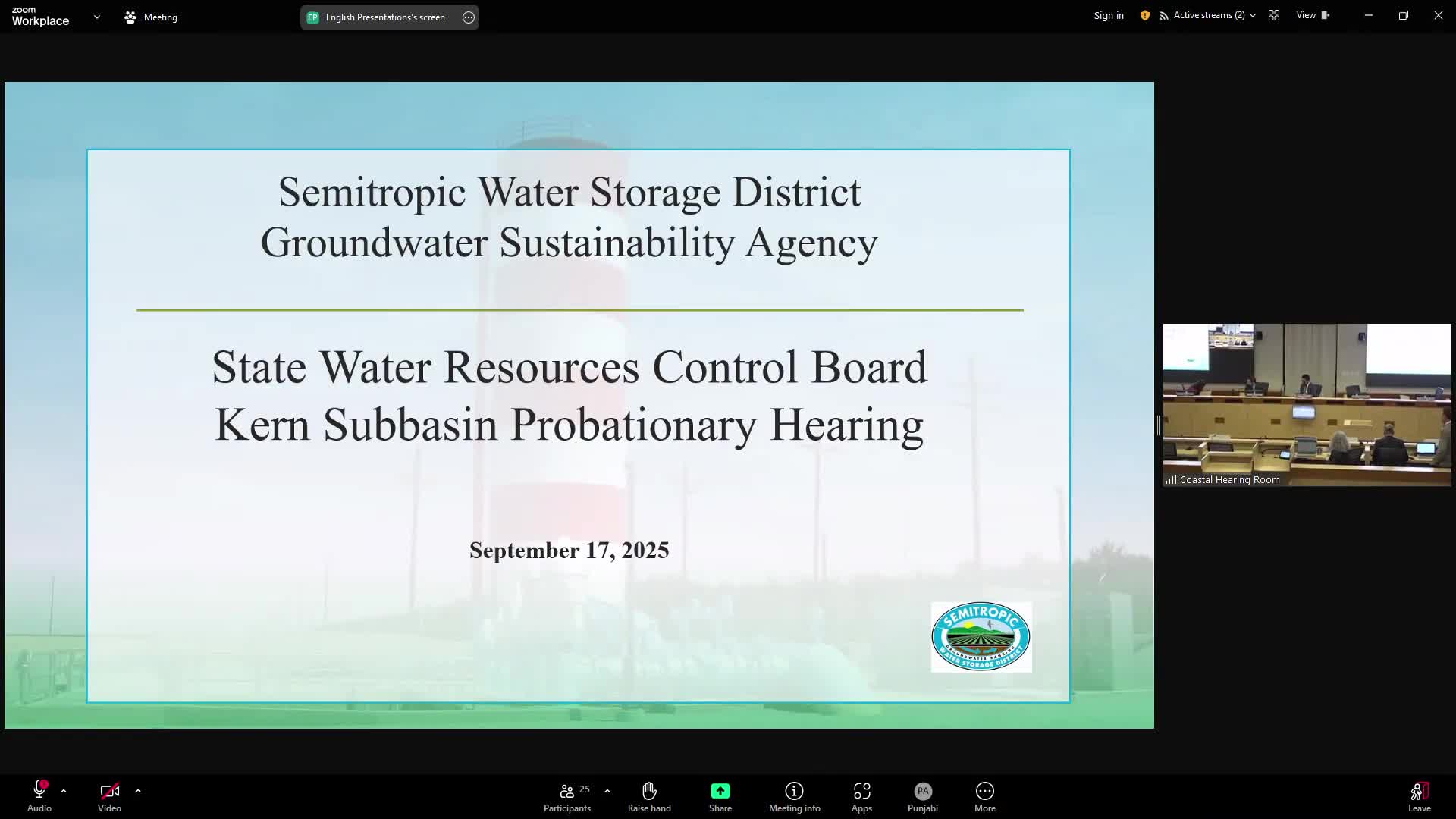Community Event in Bakersfield Adjusts Schedule for Final Panel Discussion
September 18, 2025 | State Water Resources Control Board, Boards and Commissions, Executive, California
This article was created by AI summarizing key points discussed. AI makes mistakes, so for full details and context, please refer to the video of the full meeting. Please report any errors so we can fix them. Report an error »

The recent State Water Resources Control Board (SWRCB) meeting held on September 17, 2025, highlighted significant discussions regarding water management and community engagement in California. As the state grapples with ongoing water scarcity issues, the meeting served as a platform for stakeholders to address pressing concerns and share insights on effective water resource management.
One of the key topics discussed was the scheduling of public hearings related to water use regulations. Participants noted that the current hearing was the last in a series, which had been adjusted to accommodate community feedback. This flexibility in scheduling reflects the board's commitment to ensuring that all voices are heard, particularly from local communities affected by water policies.
The meeting also underscored the importance of community involvement in water management decisions. Attendees emphasized that local events typically last between six to eight hours, allowing for thorough discussions and collaborative problem-solving. The extended duration of the current hearing, which was initially planned for a shorter timeframe, was seen as a necessary adjustment to facilitate deeper engagement and understanding among participants.
Moreover, the discussions revealed a sense of urgency among community members regarding the need for effective water management strategies. With many residents expressing concerns about the impact of water scarcity on their daily lives, the board's responsiveness to community input is crucial. This engagement not only fosters transparency but also helps build trust between the SWRCB and the communities it serves.
In conclusion, the SWRCB meeting on September 17, 2025, highlighted the critical role of community engagement in shaping water management policies in California. As the state continues to face challenges related to water scarcity, the board's efforts to adapt its processes and listen to local voices will be essential in developing sustainable solutions. Moving forward, it will be important for the SWRCB to maintain this dialogue and address the ongoing concerns of California's diverse communities.
One of the key topics discussed was the scheduling of public hearings related to water use regulations. Participants noted that the current hearing was the last in a series, which had been adjusted to accommodate community feedback. This flexibility in scheduling reflects the board's commitment to ensuring that all voices are heard, particularly from local communities affected by water policies.
The meeting also underscored the importance of community involvement in water management decisions. Attendees emphasized that local events typically last between six to eight hours, allowing for thorough discussions and collaborative problem-solving. The extended duration of the current hearing, which was initially planned for a shorter timeframe, was seen as a necessary adjustment to facilitate deeper engagement and understanding among participants.
Moreover, the discussions revealed a sense of urgency among community members regarding the need for effective water management strategies. With many residents expressing concerns about the impact of water scarcity on their daily lives, the board's responsiveness to community input is crucial. This engagement not only fosters transparency but also helps build trust between the SWRCB and the communities it serves.
In conclusion, the SWRCB meeting on September 17, 2025, highlighted the critical role of community engagement in shaping water management policies in California. As the state continues to face challenges related to water scarcity, the board's efforts to adapt its processes and listen to local voices will be essential in developing sustainable solutions. Moving forward, it will be important for the SWRCB to maintain this dialogue and address the ongoing concerns of California's diverse communities.
View full meeting
This article is based on a recent meeting—watch the full video and explore the complete transcript for deeper insights into the discussion.
View full meeting
